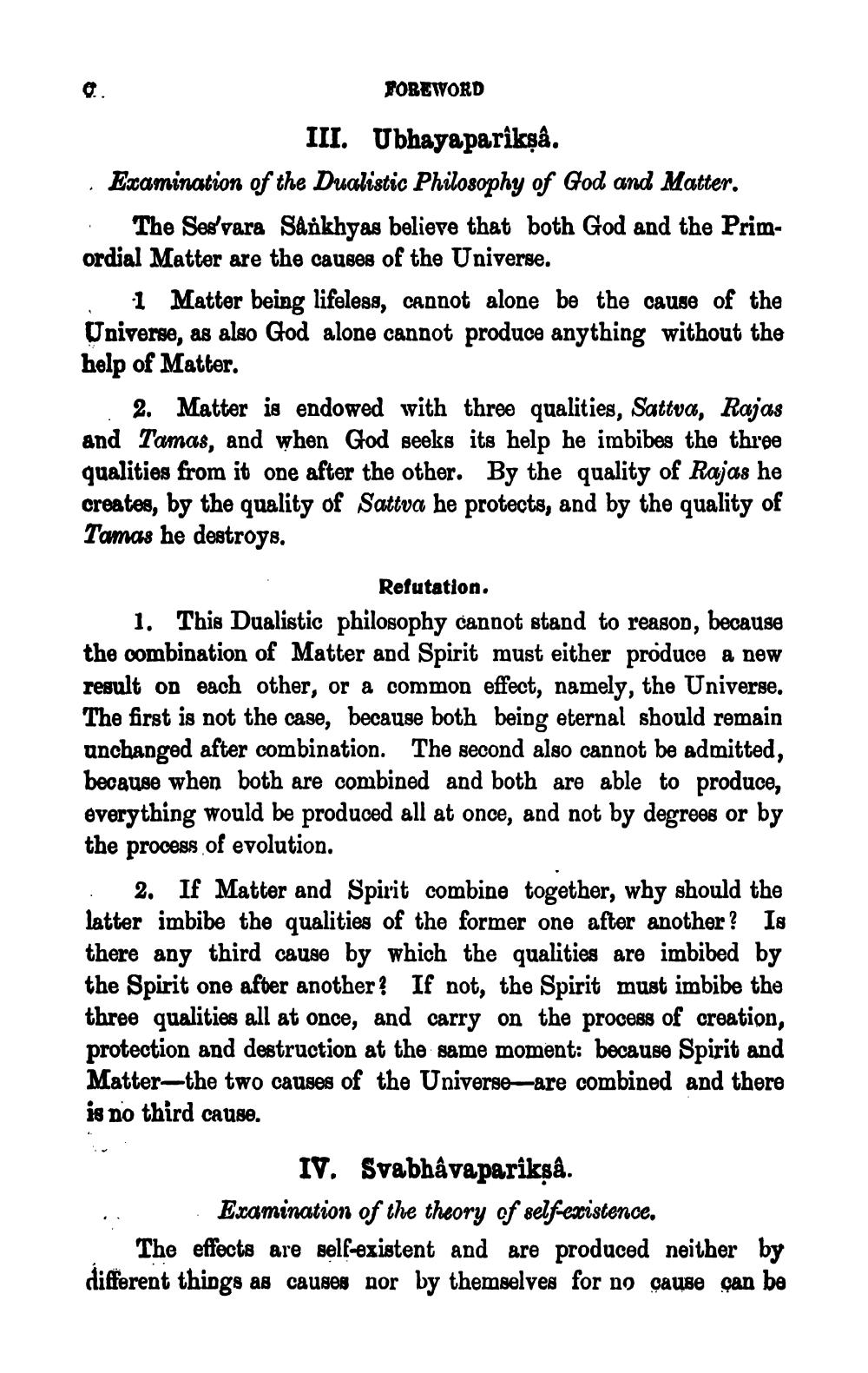________________
FOREWORD
III. Ubhayapariksa. Examination of the Dualistic Philosophy of God and Matter. · The Sesvara Sankhyas believe that both God and the Primordial Matter are the causes of the Universe.
1 Matter being lifeless, cannot alone be the cause of the Universe, as also God alone cannot produce anything without the help of Matter.
2. Matter is endowed with three qualities, Sattva, Rajas and Tamas, and when God seeks its help be imbibes the three qualities from it one after the other. By the quality of Rajas he creates, by the quality of Sattva he protects, and by the quality of Tamas he destroys.
Refutation. 1. This Dualistic philosophy cannot stand to reason, because the combination of Matter and Spirit must either produce a new result on each other, or a common effect, namely, the Universe. The first is not the case, because both being eternal should remain unchanged after combination. The second also cannot be admitted, because when both are combined and both are able to produce, everything would be produced all at once, and not by degrees or by the process of evolution. . 2. If Matter and Spirit combine together, why should the latter imbibe the qualities of the former one after another? Is there any third cause by which the qualities are imbibed by the Spirit one after another? If not, the Spirit must imbibe the three qualities all at once, and carry on the process of creation, protection and destruction at the same moment: because Spirit and Matter-the two causes of the Universe--are combined and there is no third cause.
IV. Svabhâvapariksa. .. Examination of the theory of self-existence.
The effects are self-existent and are produced neither by different things as causes nor by themselves for no cause can be




